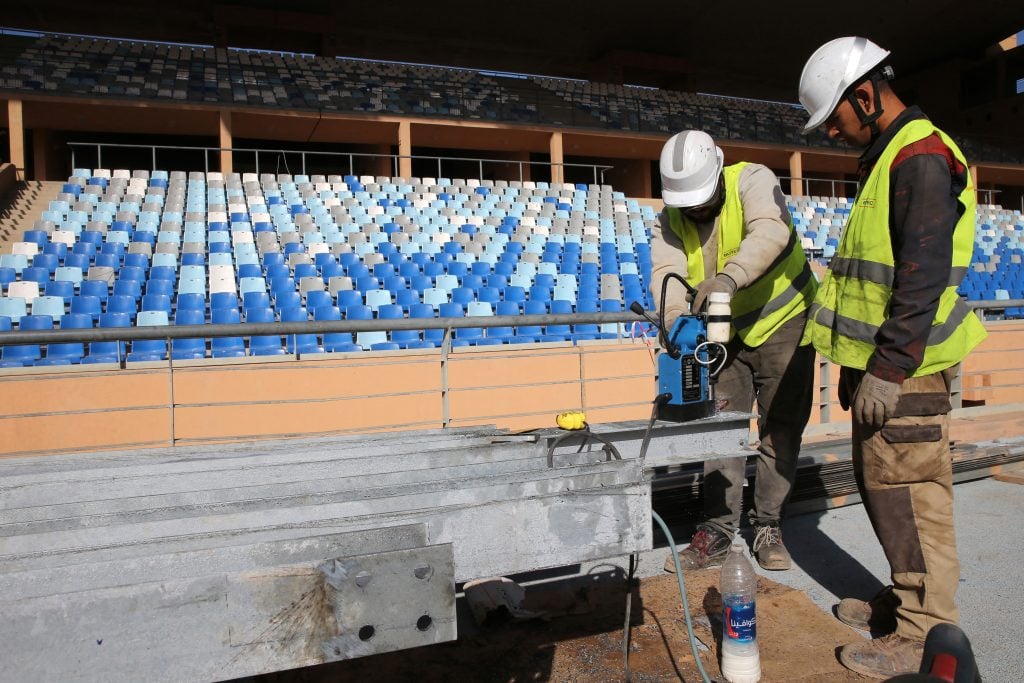Dominance of our table of the Top 20 biggest listed companies in North Africa has always been a duopoly, with Egypt and Morocco leading the rankings. Once more, not a single company from the other three North African countries is big enough to be listed. Libya’s absence is easy enough to understand, given ongoing division and conflict in the country, but Algeria’s exclusion highlights the limits of the government’s continuing economic strategy.
Algeria has the fourth biggest economy in Africa, behind South Africa, Nigeria and Egypt and ahead of Morocco; but it has no companies listed in either our North Africa Top 20 table or even in the wider Top 250. Algiers has talked about diversifying its economy away from the current reliance on oil and gas for 20 years – but has made relatively little progress and private sector participation in key parts of the economy remains restricted.
Although none are big enough to make the regional Top 20, Tunisia has seven companies, including three banks, in our Top 250. A more open economy than Algeria, it has made the most of its proximity to European markets to the north by building export-oriented sectors that tap into global supply chains. However, its smaller population means that its biggest companies are not on the same scale as those in Morocco or Egypt.
Morocco’s lead over Egypt seems to grow stronger every year. The six biggest listed companies in North Africa are all Moroccan and there are only two Egyptian companies among the top 13. Indeed, the number of Egyptian corporations in the regional Top 20 has fallen from seven in 2024 to five in this year’s table. The Egyptian government has managed to stabilise its economy over the past year and has pledged to privatise state owned companies, while reducing the military’s influence over important parts of the economy, but it has been making the same promises for many years. In the meantime, Moroccan companies go from strength to strength.
Attijariwafa Bank remains the biggest listed company in the region, with a big rise in value from $10.8bn last year to $15.6bn in our 2025 table, followed by Maroc Telecom, which is up from $8.7bn to $11.1bn. Managem comes third; we profile them below. It is followed closely by Banque Centrale Populaire; transport operator Marsa Maroc, which is heavily involved in Africa’s biggest port, Tanger Med; and power company TAGA Maroc.
Commercial International Bank remains Egypt’s biggest company but it is gradually sliding down our rankings. Continued growth of Morocco’s biggest companies means that Misr Fertilizers Production Company needed $1.7bn to secure 20th position in our regional table this year, up from the $1.3bn recorded by tobacco maker Eastern Company in 2024.
To view the full list of Africa’s Top 250 Companies 2025 click here.
Company focus: Managem
Moroccan firm Managem is one of the biggest risers in our table, moving up from 57th last year to 21st in our 2025 rankings as a result of a big increase in market capitalisation from $2bn to $6.1bn. The company, which operates in eight African countries, mines, processes and markets a wide range of commodities, including cobalt, copper, gold, silver and zinc. It has benefited from rising prices for many of its products, including for critical minerals such as copper and cobalt, which are in high demand in the energy transition, while gold prices have spiked as investors seek a hedge against volatility.
Managem is investing heavily in new projects, including its Tizert copper mine in the Moroccan province of Taroudant, and the Boto gold project in eastern Senegal. The latter is one of several sizeable deposits located in the Senegal-Mali Shear Zone, which already contains the productive Loulou and Fekola projects. In October 2024 Managem bought the Karita gold project in Guinea from IAMGOLD as part of a wider deal with the Canadian firm for assets in Guinea, Mali and Senegal. However, it is also making strategic sales, including that of the Oumejrane copper mine in Morocco’s Drâa-Tafilalet region to Purple Hedge DWC of the UAE for $30m in January.
Crédito: Link de origem


